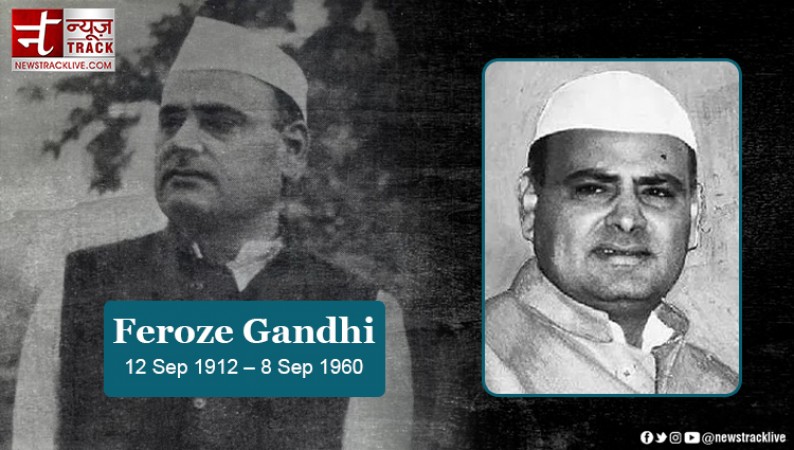
On September 8th, we commemorate the death anniversary of Feroz Gandhi, a prominent figure in Indian politics who left an indelible mark on the nation's history. Born on September 12, 1912, in Mumbai, Feroz Gandhi was a man of many talents and a dedicated advocate for social and political reform. As we reflect on his life and contributions, let's delve into the significant aspects of his journey.
Early Life and Education:
Feroz Gandhi was born to a Parsi family and received his education at the prestigious Eton College in England. Later, he attended Trinity College, Cambridge, where he honed his academic and intellectual abilities. His time in England exposed him to the ideas of socialism and democracy, which would significantly influence his political ideology in the years to come.
Entry into Politics:
Feroz Gandhi's entry into Indian politics was marked by his association with the Indian National Congress, the party that played a pivotal role in India's struggle for independence. He first caught the nation's attention when he married Indira Nehru, the daughter of India's first Prime Minister, Jawaharlal Nehru, in 1942. This marriage further integrated him into the Nehru-Gandhi political dynasty.
Advocacy for Social Causes:
Throughout his political career, Feroz Gandhi was a passionate advocate for various social causes. He was known for his efforts to promote workers' rights and improve labor conditions. He played a crucial role in the establishment of the All India Trade Union Congress (AITUC) and actively supported labor strikes and protests to demand better wages and working conditions.
Parliamentary Career:
Feroz Gandhi was elected to the Indian Parliament in 1952 from the Rae Bareli constituency. He served as a Member of Parliament (MP) for several terms and was known for his eloquence and wit in the Lok Sabha (House of the People). His contributions to parliamentary debates on various issues, including economic policy and foreign affairs, were widely acknowledged.
Legacy:
One of the most enduring legacies of Feroz Gandhi is the nationalization of banks in India. He championed the cause of bringing banking services to the masses and played a crucial role in the passing of the Banking Companies (Acquisition and Transfer of Undertakings) Bill in 1969. This move paved the way for the nationalization of 14 major banks, a significant step in India's economic history.
Untimely Death:
Tragically, Feroz Gandhi's life was cut short when he passed away on September 8, 1960, at the age of 48. His death was a loss not only to his family but also to the Indian political landscape. His contributions to the nation's development and his commitment to social justice continue to be remembered and celebrated.
Feroz Gandhi's death anniversary serves as a reminder of his unwavering dedication to the betterment of Indian society. His legacy lives on through his contributions to labor rights, banking reform, and his enduring commitment to social justice. As we remember him on this day, we honor his pivotal role in shaping India's political and economic landscape during a crucial period in its history.